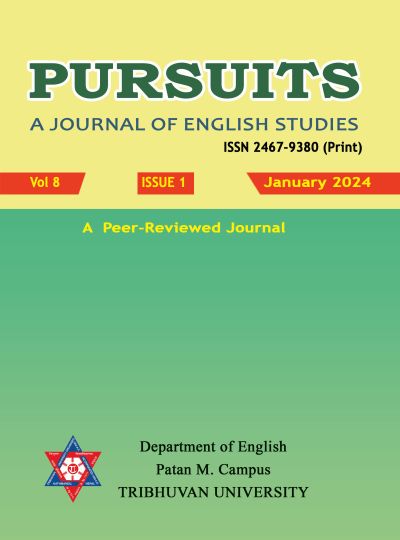Spiritual Ecology: A Path to Ecological Existentialism
DOI:
https://doi.org/10.3126/pursuits.v8i1.65327Keywords:
animism, ecology, ecognosis, existentialism, knowledge, spiritualityAbstract
This article explores the distinctive opportunities arising from the concept of spiritual ecology, and intersects with religion and ecology, religion and nature, and religion and environmentalism. On one side, these opportunities encompass problematic trends within certain facets of existing ecological aspect entangled with capitalist enclosures and consumerist desires. Conversely, it holds the promise of fostering the commitment to harmony with nonhumans’ existence, and suggests for understanding that transcends the conventional confines of religion. Many works on spiritual ecology embrace a broad multiplicity, questioning how to discern between more favorable and less favorable expressions of spiritual ecology. As this, it upholds the value of diversity while differentiating between the anti-intellectual, individualistic, and capitalistic tendencies within spiritual ecology and those that align more closely with what can be characterized as ecological existentialism or co-existentialism. It emerges as a reaction to the ideals and socio-political frameworks of current periods, which have avoided an intimate connection with the world and its revered nature. Over the past century, it has evolved into an intellectual and practice-oriented discipline, addressing the need to reconnect with the sacred dimensions of the natural world. animism




